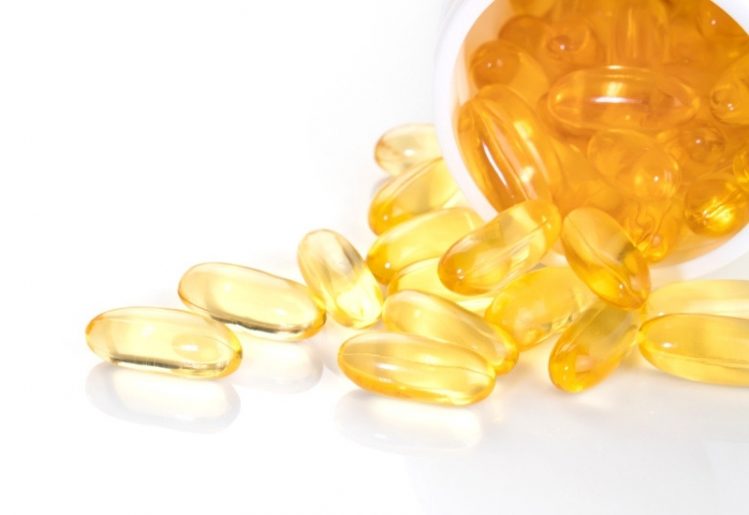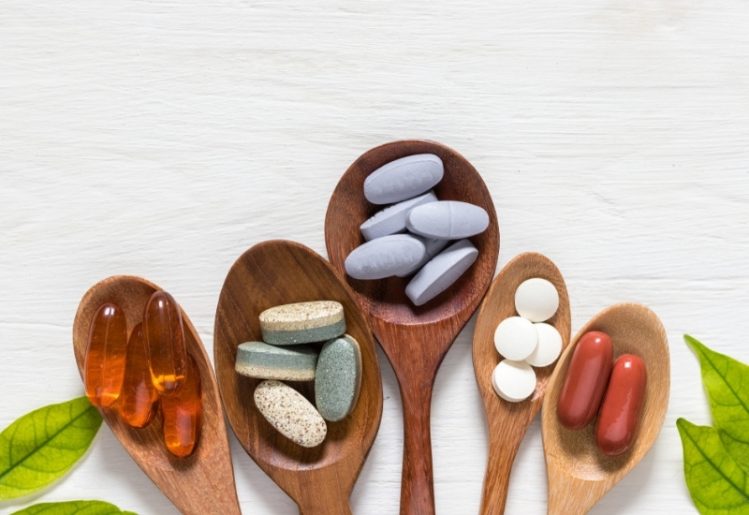In recent years, the understanding of the role of vitamin D in immune system functioning has greatly expanded. Numerous studies have connected low vitamin D levels to a wide variety of chronic conditions and diseases. Yet, clinical research trials of vitamin D supplements have revealed inconsistent results. A new study out of the University of California suggests a link between the active form of vitamin D and gut bacteria diversity, which may play a role in explaining those inconsistencies.
The Supplement Question
 Aside from its role in building strong teeth and bones, vitamin D is essential to immune system functioning. Diabetes, heart disease and cancer have all been associated with low levels of vitamin D. Clinical studies have demonstrated that deficiencies in vitamin D have been linked to a higher risk of autoimmune diseases, respiratory ailments and, in some studies, worse Covid-19 outcomes.
Aside from its role in building strong teeth and bones, vitamin D is essential to immune system functioning. Diabetes, heart disease and cancer have all been associated with low levels of vitamin D. Clinical studies have demonstrated that deficiencies in vitamin D have been linked to a higher risk of autoimmune diseases, respiratory ailments and, in some studies, worse Covid-19 outcomes.
Yet, when running clinical trials to test the efficacy of vitamin D supplements, the results have been inconsistent, with some studies even failing to show any benefit at all. Naturally, in the face of so much evidence connecting vitamin D to health and disease prevention, researchers want to know why there are inconsistencies in clinical results regarding vitamin D supplementation.
The Link Between Vitamin D and Gut Bacteria Diversity
The Vitamin D that we consume in food and supplements must be processed by the body to become bio-available. In the liver and kidneys, vitamin D is converted to calcitriol, a usable, or hormonally active, form of the nutrient. The standard vitamin D tests measure the amount of this fat-soluble nutrient that has been stored by the body. Thus, the test measures what could be called the precursor to active vitamin D.
In the study, researchers measured three elements – the precursor to active vitamin D, the active vitamin D and the substance produced by the breaking down of the nutrient. They found a correlation between those with greater gut bacteria diversity and those with higher levels of the active form of vitamin D. Researchers also noticed that more diverse gut bacteria was also associated with higher levels of butyrate. This substance is a short-chain fatty acid that results from the process of digesting fiber that may yield a number of health benefits, including helping to prevent insulin resistance and colon cancer.
While this study does have its limitations, including a focus on older white males, the results are intriguing. Maintaining a diverse array of gut bacteria may hold the key to maximizing the health benefits associated with vitamin D by promoting efficient conversion to the active form. It is important to note that correlation isn’t cause. More research will have to be done in this regard.
Gut Bacteria and Health
Maintaining healthy gut bacteria diversity is an essential part of immune system health and brain health. Through their work in the body, for example in the digestive process, these bacteria play a critical role in a vast number of chemical reactions within the body. These chemical reactions encompass a wide range of critical activities, including extracting nutrients from food and converting those nutrients into forms that the body can use. Chemical reactions are also involved in the messaging and other functions of the central nervous system. Having less diversity in gut bacteria is associated with a number of chronic health conditions, including type 2 diabetes, obesity and autoimmune diseases.
Varied, Real Food Diet
The typical, modern American diet, incorporating far too many highly processed foods, has had a negative impact on gut bacteria diversity. Some studies show that artificial sweeteners and food additives, such as emulsifiers, also have a negative impact on gut bacteria balance and diversity. One of the most important steps to reestablishing a more healthy gut bacteria diversity is to eliminate highly processed foods and chemical food additives from the diet to the greatest degree possible.
 The more varied the diet is, the greater the diversity can be expected in the gut bacteria. Choose whole grains and add plenty of fresh fruits and vegetables to the daily diet. Increase consumption of legumes, beans and probiotic foods. Some probiotic foods to consider incorporating into the daily diet include live-culture yogurt and fermented favorites, like sauerkraut and kimchi.
The more varied the diet is, the greater the diversity can be expected in the gut bacteria. Choose whole grains and add plenty of fresh fruits and vegetables to the daily diet. Increase consumption of legumes, beans and probiotic foods. Some probiotic foods to consider incorporating into the daily diet include live-culture yogurt and fermented favorites, like sauerkraut and kimchi.
Diets don’t change overnight, so while working towards a healthier diet, consider taking a probiotic supplement. Some supplements combine prebiotics with probiotics, helping to improve the bacterial environment and diversity more efficiently. Antibiotics can kill off bacteria rather indiscriminately, so taking a good probiotic supplement after a course of antibiotics can be a smart health move.
Diversity For Better Health
The new University of California study linking active vitamin D and gut bacteria diversity adds to the growing body of evidence pointing to the importance of gut bacteria to health. In terms of overall health and well-being, including brain health and immune system functioning, the evidence is clear. Gut bacteria diversity is an essential part of good health. Fortunately, improving that diversity is well within the grasp of the average person via better food choices.
 A
A  The cornerstone of all good health starts with a commitment to
The cornerstone of all good health starts with a commitment to  People tend to get less
People tend to get less  Reduce Stress and Promote Relaxation
Reduce Stress and Promote Relaxation The temptation to overindulge in holiday treats, such as sweets and foods high in fat and sodium can be hard to resist. However, there is a difference between the occasional indulgence and overindulging. Putting on weight during the holiday season is easy when overindulgence becomes a pattern. Instead, take a mindful approach to holiday eating. Enjoy every bite, but be firmly guided by the principle of moderation. By
The temptation to overindulge in holiday treats, such as sweets and foods high in fat and sodium can be hard to resist. However, there is a difference between the occasional indulgence and overindulging. Putting on weight during the holiday season is easy when overindulgence becomes a pattern. Instead, take a mindful approach to holiday eating. Enjoy every bite, but be firmly guided by the principle of moderation. By  Good nutrition and exercise help alleviate stress in ways that promote health. Meditation is another effective means. Developing concrete skills to target the sources of stress can be highly effective in reducing holiday stress. For example, developing time management skills can help increase productivity and reduce lateness, thereby reducing stress. Learning conflict resolution skills and strategies can help with difficult family situations.
Good nutrition and exercise help alleviate stress in ways that promote health. Meditation is another effective means. Developing concrete skills to target the sources of stress can be highly effective in reducing holiday stress. For example, developing time management skills can help increase productivity and reduce lateness, thereby reducing stress. Learning conflict resolution skills and strategies can help with difficult family situations. One of the most important things you can do nutritionally to support overall health and well-being is to eat real food. Eliminate as many processed foods as possible from the daily diet. Be especially ruthless in cutting out highly processed foods.
One of the most important things you can do nutritionally to support overall health and well-being is to eat real food. Eliminate as many processed foods as possible from the daily diet. Be especially ruthless in cutting out highly processed foods.  Maintaining energy levels isn’t just about feeling physically energetic. Proper energy levels also impact the mind – both mood and cognitive function. Many people feel sluggish during the winter months with their shorter days and longer nights.
Maintaining energy levels isn’t just about feeling physically energetic. Proper energy levels also impact the mind – both mood and cognitive function. Many people feel sluggish during the winter months with their shorter days and longer nights. As women near menopause, they can begin experiencing any of the following symptoms:
As women near menopause, they can begin experiencing any of the following symptoms: Estrogenic herbs
Estrogenic herbs